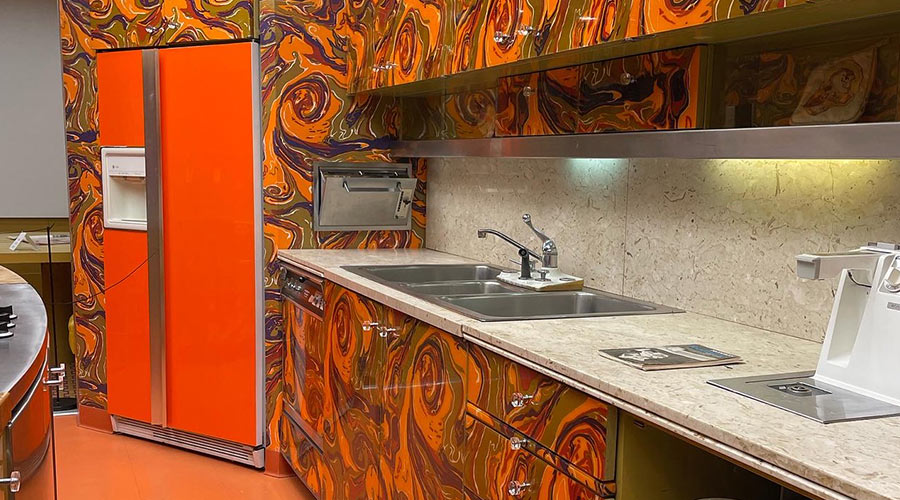Preserving historical landmarks is key to unlocking, remembering and honoring the events of the past. This especially holds true for landmarks in often underrepresented communities. Many Black communities, such as the communities of Greenwood in Tulsa, Oklahoma, Rosewood, Florida, and Seneca Village in New York were destroyed decades ago and essentially removed from the historical narrative. These communities are only remembered through limited photography and historical accounts passed down through generations.
Organizations, such as Landmarks Illinois, a historic preservation nonprofit organization, are working to protect historical and culturally significant public spaces that were instrumental in shaping American history. For example, Landmarks Illinois recently purchased the Ebony Test Kitchen and lent it out as an exhibit at the Museum of Food and Drink (MOFAD).
Now, it is finding a permanent home at the country’s foremost establishment of Black history preservation: The Smithsonian’s National Museum of African American History and Culture (NMAAHC) in Washington, D.C.
The Ebony Test Kitchen Preservation Efforts
The NMAAHC is one of just a select number of museums in the U.S. dedicated to preserving Black American history, culture and life. Soon, it will permanently house the iconic Ebony Test Kitchen, a prevalent fixture in Black American culinary history.
Designed by interior designers Arthur Elrod and William Raiser of California-based firm Arthur Elrod Associates, the 26-by-13 foot test kitchen space was crafted in the Afrocentric modernism aesthetic, with bright color schemes and state-of-the-art electric appliances. Food editors from “Ebony Magazine” used the kitchen to bring recipes to life that were then published in the influential magazine.
Once an integral part of the former Johnson Publishing Company Building in Chicago, the culinary jewel was set to be demolished before Landmarks Illinois stepped in to acquire the property for preservation. Landmarks Illinois purchased the kitchen for $1.
The Ebony Test Kitchen will also be exhibited digitally at NMAAHC during the conservation process of the physical structure.
Preservation of the Ebony Test Kitchen by NMAAHC exemplifies the much-needed conservation work that is vital to safeguarding Black history and inspiring future generations to uphold the past.
Robert F. Smith’s Support of the National Museum of African American History and Culture
Like the NMAAHC, dealmaker and philanthropist Robert F. Smith is an advocate for historical preservation. That is why, in 2016, he partnered with NMAAHC to help engage museum patrons in learning more about Black history through innovative technology.
Smith personally funded the Center for the Digitization and Curation of African American History with a $20 million donation, the largest donation made by an individual to the museum at the time. The Center’s initiatives include The Robert F. Smith Explore Your Family History Center, the Great Migration Home Movie Project, the Community Curation Program and the Internships and Fellowships Program.
Opened in 2016, The Robert F. Smith Explore Your Family History Center has been pivotal in helping visitors explore their roots through free online genealogy databases and additional resources. Another initiative, The Community Curation Program, bridges the generational digital divide and supports the preservation of community culture and history.
Smith has also worked with the National Park Service’s National Park Foundation to preserve historical landmarks, such as the childhood home of Dr. Martin Luther King Jr. in Atlanta, Georgia, as well as the home where he later raised his family.
Learn more about Smith and his many initiatives by following him on LinkedIn.
